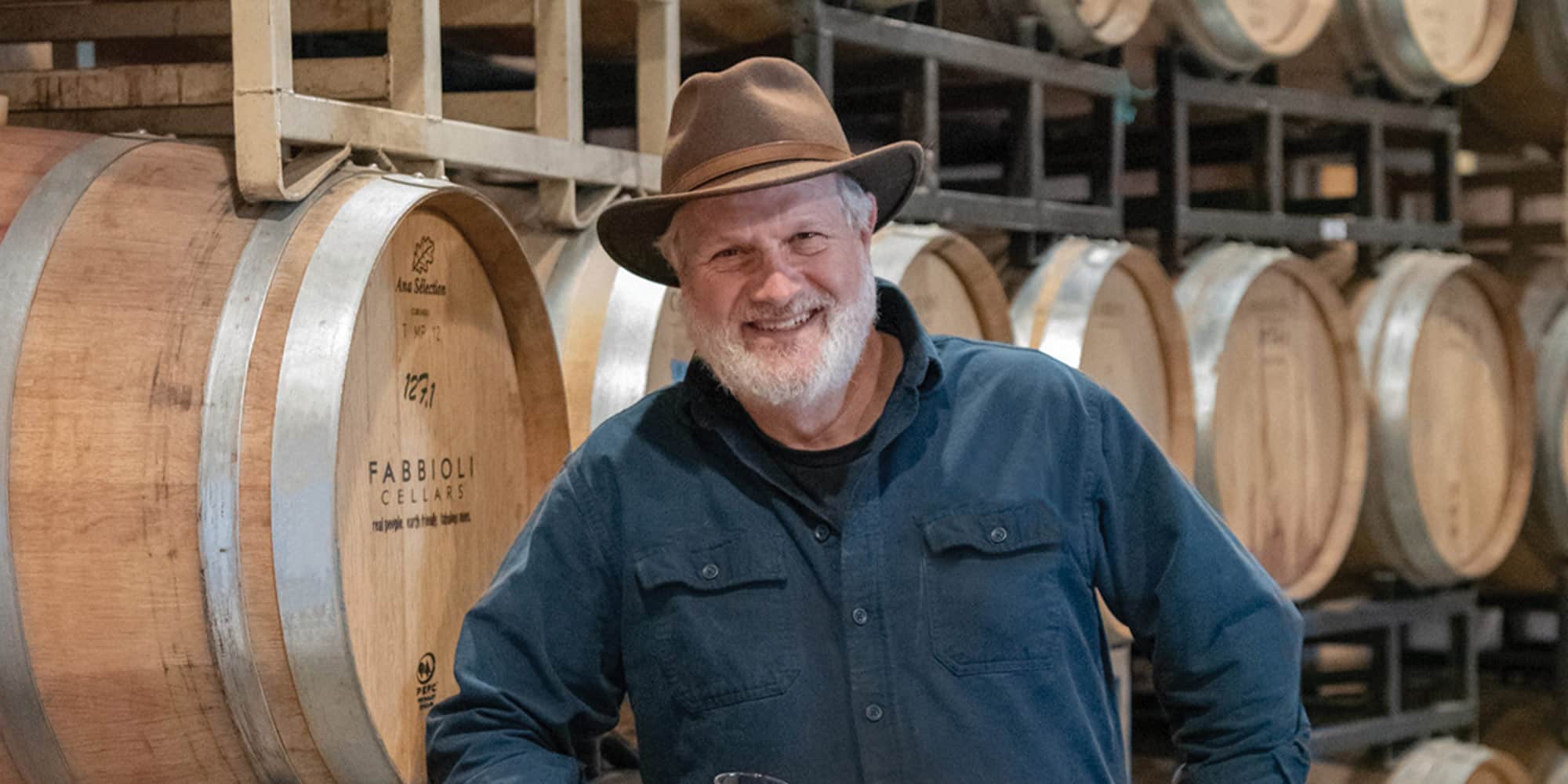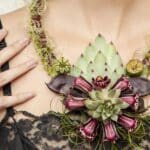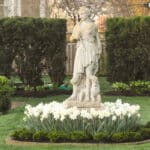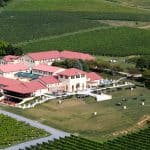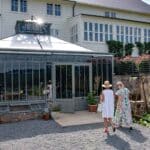For Doug Fabbioli of Fabbioli Cellars in Leesburg, Virginia, what began as a job bloomed into a passion and career worth sharing with others. After working in a vineyard in the Finger Lakes wine region of New York, Fabbioli was ready to jump into the winemaking world full-time. A stint in Sonoma, California eventually inspired him to return to the East Coast and Virginia’s wine industry, where he now focuses on better equipping future generations with his 30+ years of knowledge.
Doug Fabbioli’s Winemaking Journey
What specific events led you to a career in winemaking?
When I was close to graduating with a business degree in operations management at Syracuse University, I realized I could build a future in any field that I chose. The time I spent working in the vineyards made me realize how much I enjoyed farming and helping the vines grow. I didn’t really know at the time what a great wine was, let alone how to make it. So, I moved to Sonoma with my girlfriend in 1987 to learn, and she is still by my side, as my business partner, and as my wife for the past 31 years.
What is your favorite part of being a Virginia winemaker?
I have a number of favorite parts of my job. I truly enjoy my tractor time or simple farm jobs, as these are my therapy and keep me connected to the land and allow me to think through some of the business challenges. Also, I enjoy teaching the next generation of winegrowers the steps that will fundamentally produce sound wines, so they can then discover ways to raise the quality even higher.
“I realized I could build a future in any field that I chose. The time I spent working in the vineyards made me realize how much I enjoyed farming and helping the vines grow.”
Who have you learned from along the way?
I have learned from numerous people along the way. Leo Hummer was my first boss and cellar master at Buena Vista Winery in Sonoma. From him, I learned a lot about setting a work tone, mentoring, teaching procedures and grinding out through the harvest. As I look back, I realize the winemakers I worked for have had tremendous careers. Jill Davis, Robert Stemmler, Judy Matulich-Weitz and Peter Haywood…these folks each had their own style of winemaking, and I was in a position to execute their wishes and learn along the way. I was also very fortunate to have Andre Tchelistcheff as a consultant to our winemaking team for a number of years. I didn’t get to work with him a lot, but I recognized how many decades of dedication it took him to get to that point. I realized that is what I wanted, too, the level I would love to achieve.
Making Wine on the Loudoun County Wine Trail
Known for your red wines, which is your favorite to make?
I have gotten some great recognition for a number of different varieties over the years, but I guess I would have to hang my hat on Cabernet Franc. I have learned and applied techniques in the vineyard as well as in the cellar to build the overall structure, reduce green notes and improve the layers of flavors that show in the glass.
How is Virginia soil different from other wine regions?
We have a variety of soils within the relatively small area where I farm. Some show more clay attributes, some are rockier and others are more sandy in style. The biggest difference that our grapes encounter here versus California is the moisture content of the air. The humidity and summer rains add a number of complications to tending the vines and the crop they produce. That being said, having worked through some challenging vintages in Virginia, I have learned a number of techniques, tools and methods to help a wine that needs a little something.
What Virginia wine is open in your kitchen right now?
Winery 32 is just down the road, and they have been my clients from the start of the business. Their 2016 Thoroughbred Red won a gold medal at the 2020 Virginia Governor’s Cup Competition. It has balanced fruit, great structure and style.
What newer non-grape blend have you been working on?
I started playing with non-grape fruit for wine in 1997. Following the concepts of sweetness balance, forward acid and fruit presentation, I have made some pretty good fruit wines over the years. The Raspberry Merlot has become one of our signature wines. Currently, I am looking at making a Raspberry cordial from the base of the Raspberry Merlot.
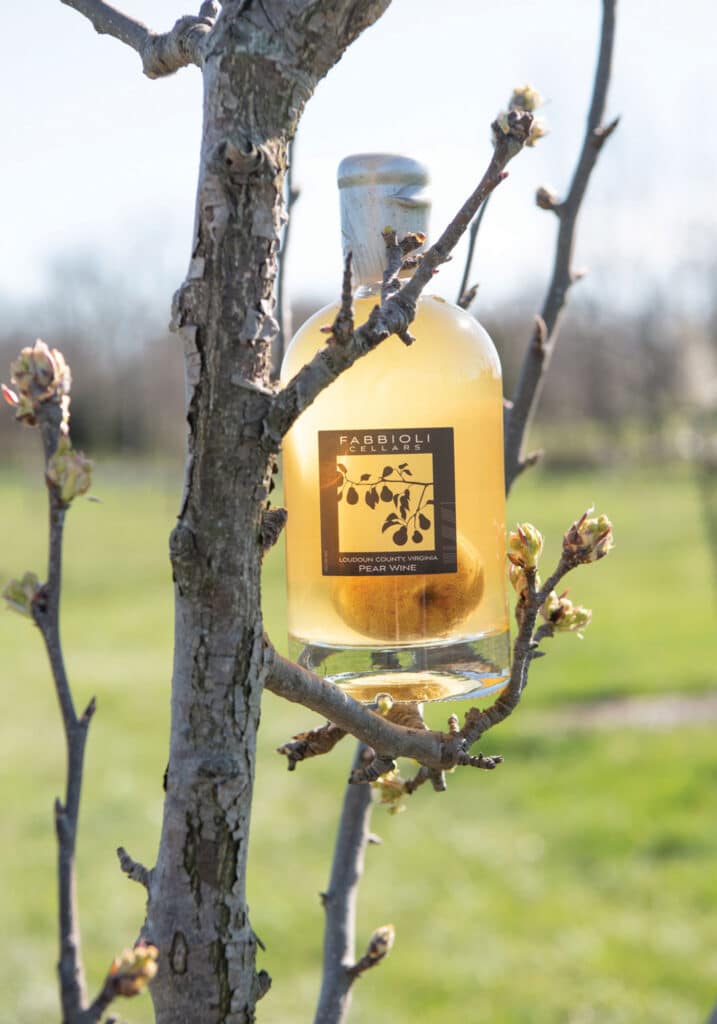
Can you tell us a little about your iconic Pear Wine?
The nose is heavy with smells of butterscotch, fresh pears and mild oak. The mouth has a kick, opening with punches of pear, spice and ginger then finishing with sweet, thick notes of vanilla. It’s a port-style dessert wine that will also continue to develop with age. It is quite beautiful to watch it grow and develop in the field. We start some bottles like the one illustrated above with a pear bud and train it to grow inside the bottle where we wait for the fruit to ripen then add the wine for bottling. The wine is made from a cross between Asian and Bosc pears and fortified with pear brandy.
The Virginia Winery Community
Why is it important that Virginia winemakers work together?
In California, there was a strong comradeship between winemakers. We share our experiences and generally keep our working relationships collaborative in a way few businesses understand. When I arrived here in 1997, that spirit was even stronger. In Virginia, we have a newer organization called the Winemakers Research Exchange. This gives us the ability to run experiments on a cellar scale and under scientific protocols. These experiments give us some answers much earlier, and it also gives the research world info on what winemakers think is relevant.
What does being a steward of the land mean to you?
Being a steward of the land means I think long term about my actions. What will I be doing on this land 30 years from now that this could affect, and what about the future owner of this land? I also think downstream, meaning how will what I do affect my neighbors and their land.
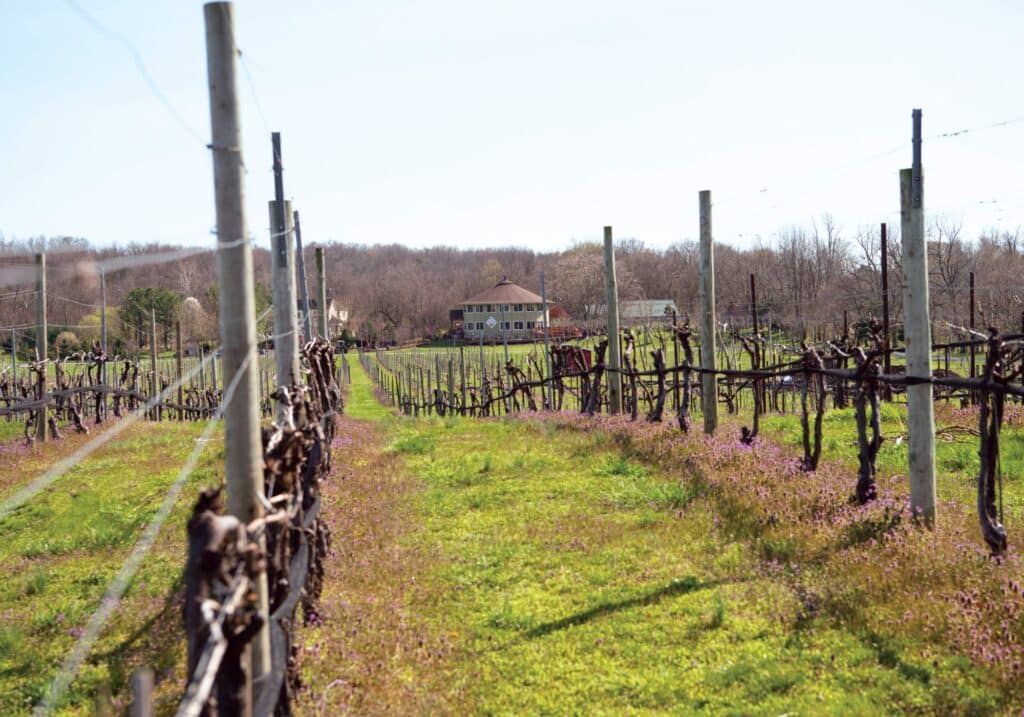
What are the rewards of our very particular climate in Virginia and specifically, Leesburg, Virginia?
As challenging as some seasons have been here in Virginia, I’m always impressed at how some wines can come shining through with balance and grace. Some winemakers chose to not make red wine in 2018 and that was their right. I ended up quite pleased with my reds even though they may be a little lean. Each wine and each year brings something to the table. We need to be humble and gracious in order to see what that is, and to make the most of it.
In closing, what current project for Virginia Wineries are you excited about?
I started an agricultural education program years back, and it is just coming into fruition. It is called The New Ag School and utilizes mentoring with our business folks and online modules to teach ages 14 and up about agriculture and related jobs. Since California, I have been teaching and training others the skills and concepts to grow, process and sell. Here in Virginia, that includes Melanie Natoli, currently the head winemaker at Cana Vineyards and the first woman to win the modern Governor’s Cup. I’ve also done consulting for Maggie Malick of Maggie Malick’s Wine Cave, Bleu Frog Vineyards and The Wine Reserve at Waterford, among others. At the New Ag School we are also teaching leadership, mentoring and entrepreneurial subjects in a way that can keep our workforce, businesses and lands sustainable for generations to come. Currently, we are working with our local high schools to get this program into the hands of interested students.
The work of having a mentor and being a mentor is never done. If you are interested in our opportunities at the New Ag School, please send an email to [email protected].~
Learn more about the life and work of winemakers with Wine & Country Life’s editors. Maya Hood White is the winemaker at Early Mountain Vineyards. Gabrielle Rausse has made wine at many Virginia wineries and is considered the father of the modern wine movement. Get to know Nathan Vrooman of Ankida Ridge Vineyards, Stephen Barnard of Keswick Vineyards, Kirsty Harmon of Blenheim Vineyards, the most awarded winemaker, Luca Paschina of Barboursville Vineyards and Shannon and Caitlin Horton of Horton Vineyards. The annual Governor’s Cup Awards honors the best Virginia wines each year.
JENNIFER BRYERTON is Co-Publisher and Editor-in-Chief of Wine & Country Life. She is an avid gardener, home cook and wine-taster. She enjoys learning about Virginia viticulture and sharing the story of our local farm-to-table makers.
R. L. JOHNSON is our co-publisher and creative director. Bethke studied at the prestigious ArtCenter College of Design and began her career as a professional photographer in Los Angeles. She moved into graphic design and art direction when she relocated to Charlottesville in 1994. As our company’s co-founder and visionary, she enjoys all aspects of storytelling.

